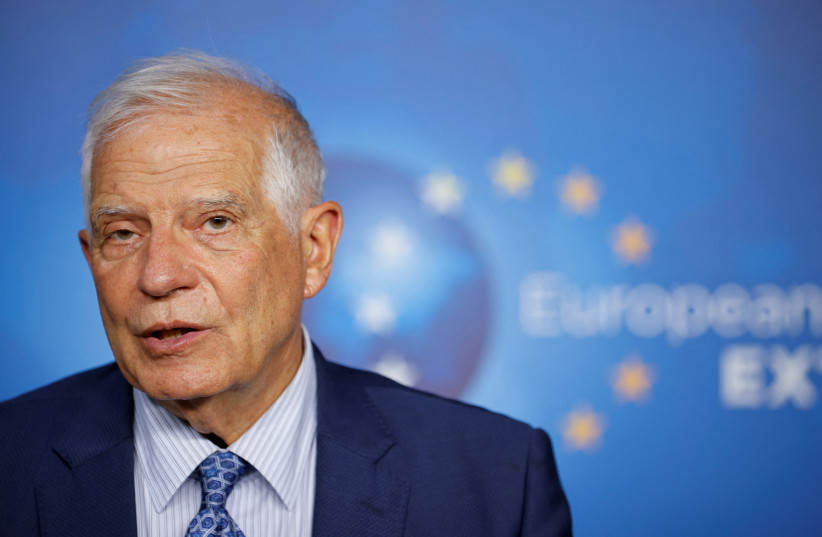Israel will not allow European Union foreign policy chief Josep Borrell to make an official visit to the country, to protest his comments equating victims of Palestinian terror with those killed by the IDF.
The comments are “outrageous,” an Israeli official told The Jerusalem Post, confirming a report first published on army radio Wednesday morning.
Borrell is not barred from the country but the Foreign Ministry does not intend to host him for an official visit in light of the article that he published in Project Syndicate last week.
Ongoing EU-Israel relations and Brussels' views on the Palestinian conflict
Israel and the EU have a close trading partnership, with the Jewish state often given the same access to many EU programs and research projects as granted to member states.
The EU governing body in Brussels, however, has long had a tense relationship with Israel given their policy differences concerning the Israeli-Palestinian conflict. Tensions over that conflict, particularly about Israeli settlement activity, prevented the EU-Israel Association Council from convening for a decade. It was revived by former Prime Minister Yair Lapid in October 2022 after he affirmed Israel’s commitment to a two-state resolution to the conflict at the UN General Assembly in September.

President Isaac Herzog visited Brussels in January and addressed the European Parliament.
But tensions have quickly flared since Prime Minister Benjamin Netanyahu took office in December, with the EU failing to designate the Iranian Revolutionary Guard Corp as a terror entity when its foreign ministers met in Brussels in February.
The union has also been outspoken over the new government’s policies about the Israeli-Palestinian conflict as well as its judicial overhaul program, which the 27-member bloc fears could weaken Israeli democracy. The European Parliament held a debate on the matter on Tuesday.
Foreign Minister Eli Cohen had spoken with Borrell before the parliamentary debate and asked him not to hold it. At the start of the debate, the EU foreign policy chief replayed positions of the conversation to the parliament, explaining that he did not control the parliament but that given the prominence democracy played in the relationship, its concern was understandable.
A European official said that Israel had not notified Brussels of its position regarding a visit by Borrell, noting that high-level Israeli officials had visited Brussels in the past and participated in an informal meeting of the foreign ministers.
